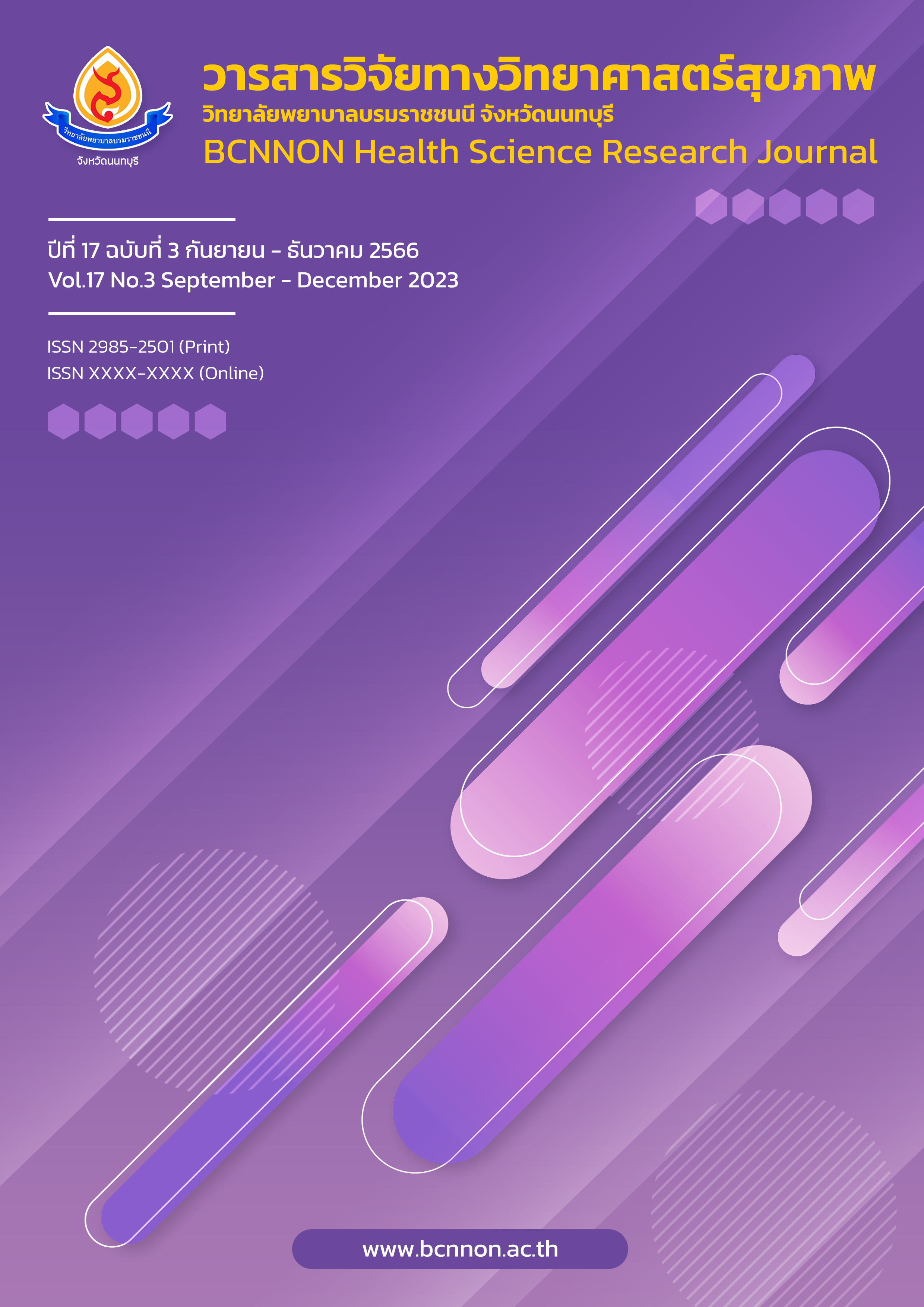แนวปฏิบัติที่ดีในการดำเนินงานวิจัยเชิงคุณภาพกับผู้สูงอายุ ที่มีภาวะสมองเสื่อมระยะเริ่มต้น
Main Article Content
บทคัดย่อ
บทความนี้มีวัตถุประสงค์เพื่อแสดงให้เห็นถึงแนวปฏิบัติที่ดีในการดำเนินการวิจัยกับผู้สูงอายุที่มีภาวะสมองเสื่อมระยะเริ่มต้น ซึ่งเป็นผู้มีประสบการณ์ตรงในการมีชีวิตอยู่กับภาวะสมองเสื่อมที่ยังมีความสามารถถ่ายทอดประสบการณ์ ความคิดเห็น ความรู้สึก ความต้องการของตนเองให้กับผู้อื่นได้ ยังคงมีความสามารถในการจดจำหรือระลึกถึงข้อมูลที่เกี่ยวข้องกับการวิจัยได้ และสามารถตัดสินใจเข้าร่วมการวิจัยได้ บทความนี้รวบรวมข้อมูลความรู้จากการทบทวนวรรณกรรมที่เกี่ยวข้องกับการทำวิจัยร่วมกับผู้สูงอายุที่มีภาวะสมองเสื่อมและจากประสบการณ์ของผู้เขียนที่ทำวิจัยกับผู้สูงอายุที่มีภาวะสมองเสื่อมระยะเริ่มต้น
ผู้สูงอายุที่มีภาวะสมองเสื่อมระยะเริ่มต้นถือเป็นกลุ่มเปราะบาง ที่ผู้วิจัยต้องคำนึงถึงความละเอียดอ่อนด้านผลกระทบจากการเข้าร่วมวิจัย ทั้งด้านร่างกาย จิตใจ สังคม และจิตวิญญาณ อย่างไรก็ตาม อาสาสมัครกลุ่มนี้ควรได้รับการปฏิบัติแบบเดียวกับผู้เข้าร่วมการวิจัยกลุ่มอื่น ๆ บทความฉบับนี้เน้นถึงแนวปฏิบัติที่ดีในการดำเนินการวิจัยเชิงคุณภาพกับผู้สูงอายุที่มีภาวะสมองเสื่อมระยะเริ่มต้น โดยคำนึงถึงประเด็นจริยธรรมที่ควรพิจารณา 6 ประเด็น ได้แก่ การคัดเลือกอาสาสมัครเพื่อเข้าร่วมงานวิจัยเชิงคุณภาพ การให้ข้อมูลการวิจัยและการขอความยินยอมเข้าร่วมการวิจัย ความเสี่ยงทางด้านจริยธรรมการวิจัยและแนวทางการจัดการกับความเสี่ยง วิธีการดำเนินงานวิจัย เทคนิคการสัมภาษณ์ และข้อควรตระหนักในการดำเนินการวิจัย เพื่อให้ทราบถึงมุมมอง ประสบการณ์ที่แท้จริงกับการมีชีวิตอยู่กับภาวะสมองเสื่อมระยะเริ่มต้น ปัญหา และความต้องการของผู้สูงอายุที่มีภาวะสมองเสื่อมที่เป็นผู้ให้ข้อมูลในงานวิจัย
Downloads
Article Details

อนุญาตภายใต้เงื่อนไข Creative Commons Attribution-NonCommercial-NoDerivatives 4.0 International License.
บทความที่ได้รับการตีพิมพ์เป็นลิขสิทธิ์ของวิทยาลัยพยาบาลบรมราชชนนี จังหวัดนนทบุรี
ข้อความที่ปรากฏในบทความแต่ละเรื่องในวารสารวิชาการเล่มนี้เป็นความคิดเห็นส่วนตัวของผู้เขียนแต่ละท่านไม่เกี่ยวข้องกับวิทยาลัยพยาบาลบรมราชชนนี จังหวัดนนทบุรี และคณาจารย์ท่านอื่น ในวิทยาลัยฯ แต่อย่างใด ความรับผิดชอบองค์ประกอบทั้งหมดของบทความแต่ละเรื่องเป็นของผู้เขียนแต่ละท่าน หากมีความผิดพลาดใด ๆ ผู้เขียนแต่ละท่านจะรับผิดชอบบทความของตนเองแต่ผู้เดียว
เอกสารอ้างอิง
McKeown J. Researching with people with Dementia. In: Liamputtong P, editor. Handbook of research methods in health social sciences. East Gateway: Springer; 2019.
Hughes T, Castro RM. A processural consent methodology with people diagnosed with dementia. Qual Ageing Older Adults. 2015;16(4):222–34.
Kitwood T. Dementia reconsidered: the person comes first. New York: Open University Press;1997.
Higgins P. Involving people with dementia in research. Nursing times. 2013;109(28):20-3.
Scottish Dementia Working Group, Research Sub-Group, United Kingdom. Core principles for involving people with dementia in research: Innovative practice. Dementia. 2014;13(5):680-5.
Gove D, Diaz-Ponce A, Georges J, Moniz-Cook E, Mountain G, et al. Alzheimer Europe’s position on involving people with dementia in research through PPI (patient and public involvement). Aging Ment Health. 2018;22(6):723-9.
Ljubenkov PA, Geschwind MD . Dementia. Semin Neurol. 2016;36(4):397-404.
Coope B, Richards FA. ABC of dementia. Chichester, West Sussex: Wiley- Blackwell; 2014
Bolt SR, van der Steen JT, Khemai C, Schols JMGA, Zwakhalen SMG, Meijers JMM. The perspectives of people with dementia on their future, end of life and on being cared for by others: A qualitative study. J Clin Nurs 2022;31(13-14):1738–52.
Risco E, Cabrera E, Farré M, Alvira C, Miguel S, Zabalegui A. Perspectives about health care provision in dementia care in Spain: A qualitative study using focus-group methodology. Am J Alzheimers Dis Other Demen. 2016;31(3),223-30.
Pratt R. ‘Nobody’s ever asked how I felt’. In: Wilkinson H, editor. The Perspectives of people with dementia: Research method and motivation. London: Jessica Kingsley;2002.
Bartlett H, Martin W. Ethical issues in dementia care research. In: Wilkinson H, editor. The perspectives of people with dementia: Research methods and motivations. London, UK: Jessica Kingsley;2002.
Hegde S, Ellajosyul R. Capacity issues and decision-making in dementia Ann Indian Acad Neurol. 2016;19(1):S34-S39.
Sutcliffe CL, Roe B, Jasper R, Jolley D, Challis DJ. People with dementia and carers’ experiences of dementia care and services: Outcomes of a focus group study. Dementia. 2015;14(6):769-87.
Svanstrom R, Sundler AJ. Gradually losing one’s foothold: A fragmented existence when living alone with dementia. Dementia. 2015;14(2):145-63.
Portacolone E, Johnson JK, Covinsky KE, Halpern J, Rubinstein RL. The effects and meanings of receiving a diagnosis of mild cognitive impairment or alzheimer’s disease when one lives alone. J Alzheimers Dis. 2018;61(4):1517-29.
Creswell JW. Research design: Qualitative, Quantitative, and Mixed methods approaches fourth edition. Thousand Oaks: Sage; 2014.
Spradley JP. The ethnographic interview. Belmont: Warsworth Cengage Learning; 1979.
Fetterman DM. Ethnography: Step-by-step fourth edition. Los Angeles, Sage; 2019.
Murphy K, Jordan F, Hunter A, Cooney A, Casey D. Articulating the strategies for maximising the inclusion of people with dementia in qualitative research studies. Dementia. 2015;14(6):800-24.
Noysipoom N. The needs of older persons with early stage dementia from their perspectives: An ethnographic study in northeast Thailand. [Dissertation]. United Kingdom: The University of Hull; 2021.
Górska S, Forsyth K, Irvine L, Maciver D, Prior S, Whitehead J, et al. Service-related
needs of older people with dementia: perspectives of service users and their unpaid carers. Int Psychogeriatr. 2013; 25(7):1107-14.
Johansson MM, Marcusson J, Wressle E. Cognitive impairment and its consequences in everyday life: experiences of people with mild cognitive impairment or mild dementia and their relatives. Int Psychogeriatr. 2015; 27(6):949-58.
Digby R, Lee S, Williams A. Interviewing people with dementia in hospital: recommendations for researchers. J Clin Nurs. 2016;25(7–8):1156–65.
Cridland EK, Phillipson L, Brennan-Horley C, Swaffer K. Reflections and recommendations for conducting in-depth interviews with people with dementia. Qual Health Res. 2016;26(13):1774-86.


